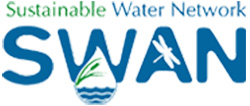Here’s how to save water in your home to celebrate World Water Day!

22nd March 2017
Today is World Water Day! To mark the day we’re sharing a list of ways you can reduce water consumption in your home.
Did you know that in the average Irish household one person uses about 160 litres of water a day? Water needs to be treated so that it can be safe for human consumption, which is an expensive process. As well as that, it needs to be treated after it goes down your drain. Be careful what you waste, as the treatment process cannot remove many harmful chemicals. These can slip through the treatment system. Not only are they harmful to marine life but they end up back in your drinking water.
Here’s some simple tips for best practice in your home.
Reducing consumption:
- Don’t leave taps running or dripping. Fix those leaks! A tap dripping once every second wastes 10,000 litres of water a year.
- Take a shower instead of a bath, and don’t leave the tap running while brushing your teeth.
- Use dishwashers and washing machines only when they are full.
- Collect rainwater for watering the garden and washing the car. A rainwater harvesting system will reduce use from the mains by 50%.
- One third of water in the home is flushed down the toilet. Put a brick or a plastic bottle in the cistern to reduce the amount of water per flush.
- Avoid using a sprinkler or hose in your garden (use a bucket for washing your car).
Reducing pollution – What not to drain away:
- Do not pour paints, oils, wood preservatives, solvents, varnish, thinners, pesticides, fertilisers, poisons and acids down the drain. Bring them to the appropriate waste facilities.
- Avoid using pesticides, fertilizers and other chemicals in the garden.
- If you are not on a mains sewerage system, empty and maintain your septic tank regularly and ensure it is serviced by an authorised company. This will ensure that the system doesn’t get backed up and end up polluting nearby streams and lakes.
- Minimise your use of bleaches, disinfectants and anti-bacterial products. These products kill good as well as bad bacteria, making your septic tank less effective, raising upkeep costs and raising risk of pollution. Try some eco-friendly products or make your own non-toxic cleaning supplies from ingredients like vinegar and baking soda.
Our thanks to the Sustainable Water Network for the information. You can find tips on saving water for home, business and leisure by visiting their website here.
[x_author title=”About the Author”]







